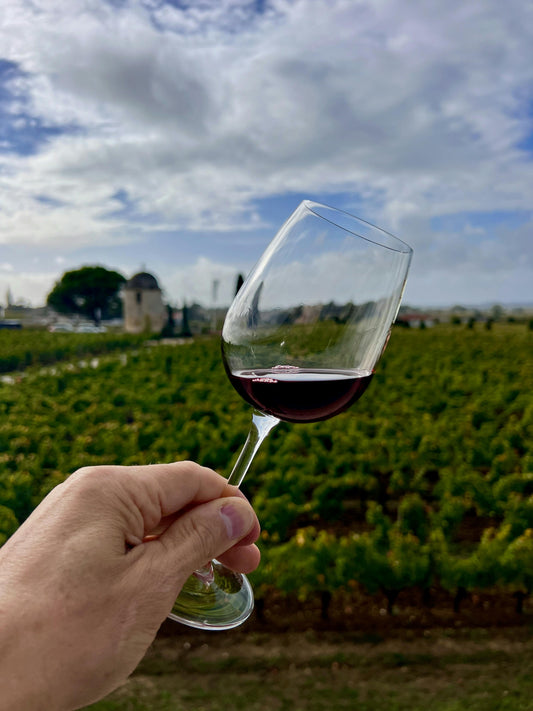Capital not only robs the worker, but it robs the soil too.
Karl Marx
According to Jason Hickel, it is the Global South that is developing the Global North rather than the other way around (link). Why is there this travesty where we think we are the ones doing justice and helping the South recuperate and develop? Where does this unbased confidence come from? From the soil on which we plant our feet? Miles away from their land? Or from the knowledge that we think we know how to plant, pillage, profit, protect the world?
So are we doing the right thing when we try to pursue Green Capitalism? Electric vehicles (link), electric tractors (link), infrastructures to tap and store natural energy (link) may be the way forward but there is the notion that green capitalism is not the way to save the world. The common phrase to think about this is that green capitalism or decarbonization is like filling water in a bathtub but the bathtub is getting bigger at faster rate than the water is filling it.
Green capitalism requires mining for resources below level. The level of the dirt (link) and the level of the class divide.
So what we get drunk. So what we don’t sleep. We’re just having fun. We don’t care who sees.
Young, Wild, and Free – Snoop Dogg and Wiz Khalifa
So what if we made all new cars to be sold in California after 2035 to be EV? Does the car manufacturing industry source more Lithium from Chile? So what if we continuously put miners in dangers. Does the car manufacturing industry source more Copper from the Atacama Dessert? So what if we continuously bring water from regions nearby to process and mine those copper? Does the working class or farm workers get incentives to buy new EV cars? So what if they keep driving fuel-driven cars and still contribute to our issues?
So what if we built more solar panels and windmills? Does the amount of infrastructure built increase and we use more metals? So what if we continuously build batteries and mine lithium and copper? Does the amount of square footage for renewable energy take up more space? So what if every month, the equivalent size of New York City is built around the world as new buildings? Does investing in these renewable energies displace indigenous communities? So what if
There is a misconception that degrowth is the same as austerity (link). Austerity would mean cuts in personal savings and public welfare systems. Austerity further drives the gap larger in the wealth inequality. Once again, Jason Hickel said this about austerity in an interview with Upstream (link, 23:00 onwards).
“… whenever growth starts to slow down then politicians try to jump start it by cutting spending on social services, cutting public sector, wages etc. The idea here is to drive down wages, make labor cheaper, and therefore making it easier to achieve the right profits. But also the idea is that if you cut peoples’ access to public goods, you put people in a situation where they’re forced to earn more income simply in order to survive, to access those basic goods they used to access for much more affordably. That forces them to produce more and so people are put in a position where they’re forced to produce more things that they don’t actually need in order to access basic things they do need things like housing, healthcare, education. So in this sense, austerity is clearly a tool of growth-ISM, it’s a tool of capital accumulation and we have to recognize that as such and we have to fight against that tendency with the exact opposite policies which is simply to do the opposite: to expand public services, distribute income more fairly, ensure good wages for all so that additional growth is not necessary in order to improve peoples’ lives. Doing that delinks human well-being from potential growth and that’s the approach we should be taking.”
Degrowth is more like donut economy (link here) in the end goal. The end goal assumes that exponential growth or continual exploitation of labor and planet will be nonexistent. How does capitalism work if these treasures are removed from the equation? The problem with capitalism is that it is a complicated problem and it requires a complicated solution. Degrowth is the complicated solution.

Figure 1. Iceberg model of degrowth policy proposals – core instruments on top (in descending order of citation frequency), themed goals below (random position) (Fitzpatrick et al. 2022, link).
Degrowth may mean that we use less, produce less, but have more relationships with one another. If you’re thinking that world hunger or food insecurity is a problem now because of the lack of food, then that is just wrong. Martin Capaross’s book “Hunger: The Oldest Problem” explores hunger and its various causes. From reading that, you could gather that limiting agricultural land use for food isn’t necessarily going to contribute to the world hunger. But there is something we should think about; do we start producing less grapes and wines?
97% of the wineries in the United States are considered small with only a number of employees. However, these employees are not being paid their fair share. It is only labor that can generate value, not land, not commodity. It is labor. These wineries tend to only think of wine as something they want to contribute to society without thinking of how they contribute to society in the terms of how they employ these members of society. With 11,300 wine producers (in 2021 link) in the United States, there is an abundance of different wine labels and the absurdity that comes from keeping these wineries afloat; from the acres of land that we use for vineyards, from the materials we use to build and maintain these wineries, from the emissions we cause from hauling grapes, wines, and tanks (EV trucks are not ready for such weight and mileage yet), from the surplus value extracted from the labor that are put into producing these wines.
It is often thought that the extinction of boutique wineries will only lead big wine companies like Gallo or Constellation to remain. This is true under our current market and system. Under degrowth, that would not be the case. In the scenario of donut economy, we will have less boutique wineries, but we will also diminish the size and production capacity of those bigger wineries. There is also the assumption that the loss of job producing facilities, the earning power of employees will diminish. However, with the guaranteed income, less working hours, and diminished costs of living (from housing to food), there is a better shift of wage dispersion and free time allocated to take care of children or to do chores.
Unfortunately, Yata Eagle does not contribute to Degrowth principles in the short-term. To have a company perform degrowth principle might be beneficial for a limited sphere and it does not create waves like a boat does in the ocean. Degrowth can’t be propped up in individual businesses or organizations because external factors will always force their pressure onto it. Much like the nationalization of natural resources in Central and South American countries, the economic and political power of other countries tried or tries to expand its hegemony on those self-liberating countries (link here).
What we could do, as an organization, is this: we could start getting involved in political movements (both local and federal) too that encourages policies that drive culture and society towards a donut economy. Short-term and long-term movements. This doesn’t necessarily mean that we focus on donating to politicians’ campaigns or engaging in lobbying. Since politicians and states should represent the people’s interests (emphasis on people and not businesses or capital growth), we need the people to voice this interest. The first part of this process is education. We would do our best to broaden the market of our wine products, attaching these essays and information about other societal directions with the products. Hopefully people engage in these readings or posts.
Secondly, the focus would be the simultaneous push of pressuring businesses to adopt this principle and pressuring states to facilitate these economic movements. This would be hard, honestly, because there isn’t a clear guidebook on how to achieve this. But Yata Eagle is always listening, always speaking, and always looking. We gain knowledge and aim to distribute knowledge. We do this for a better future, for a better past, and a better present.




